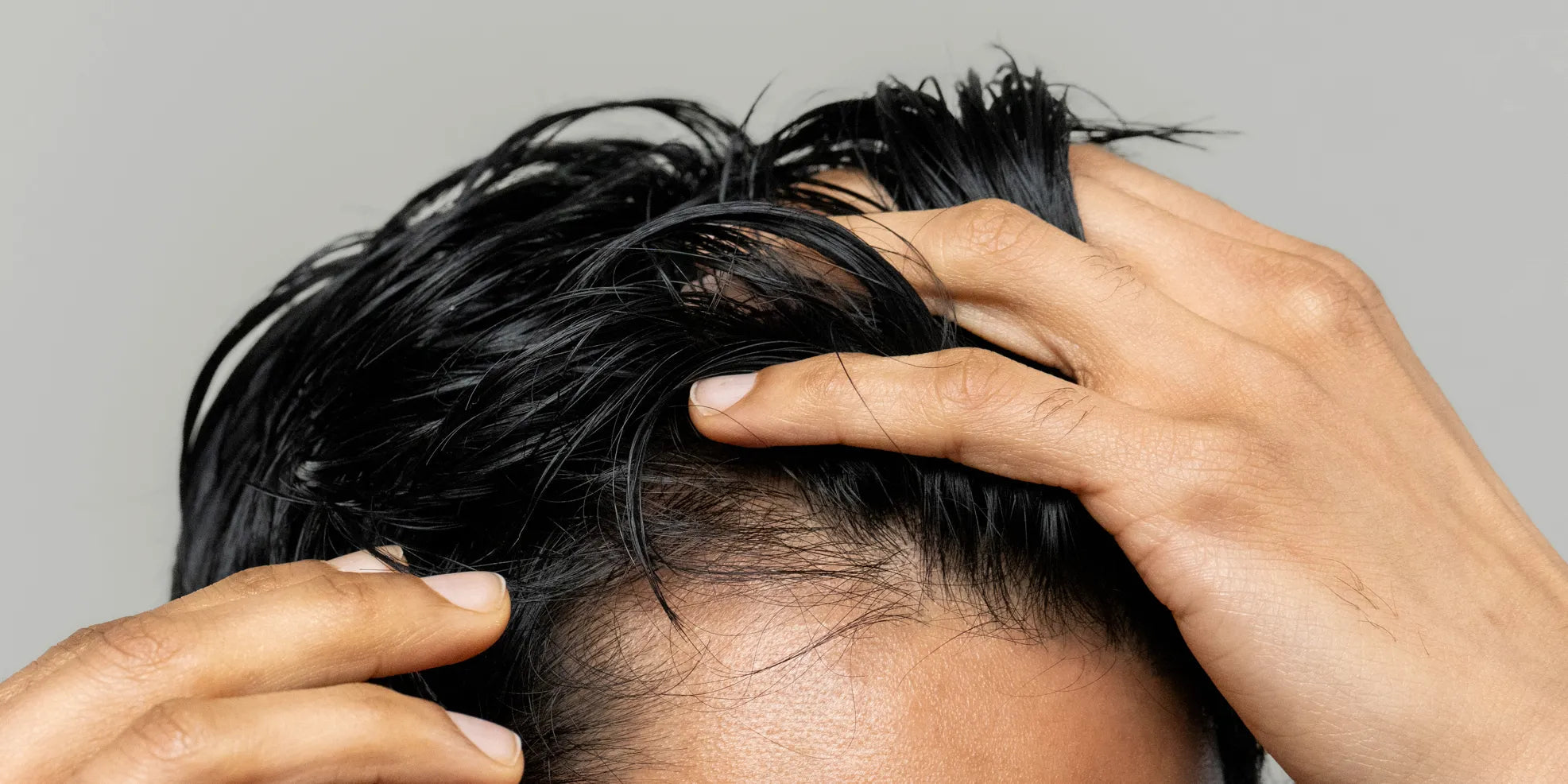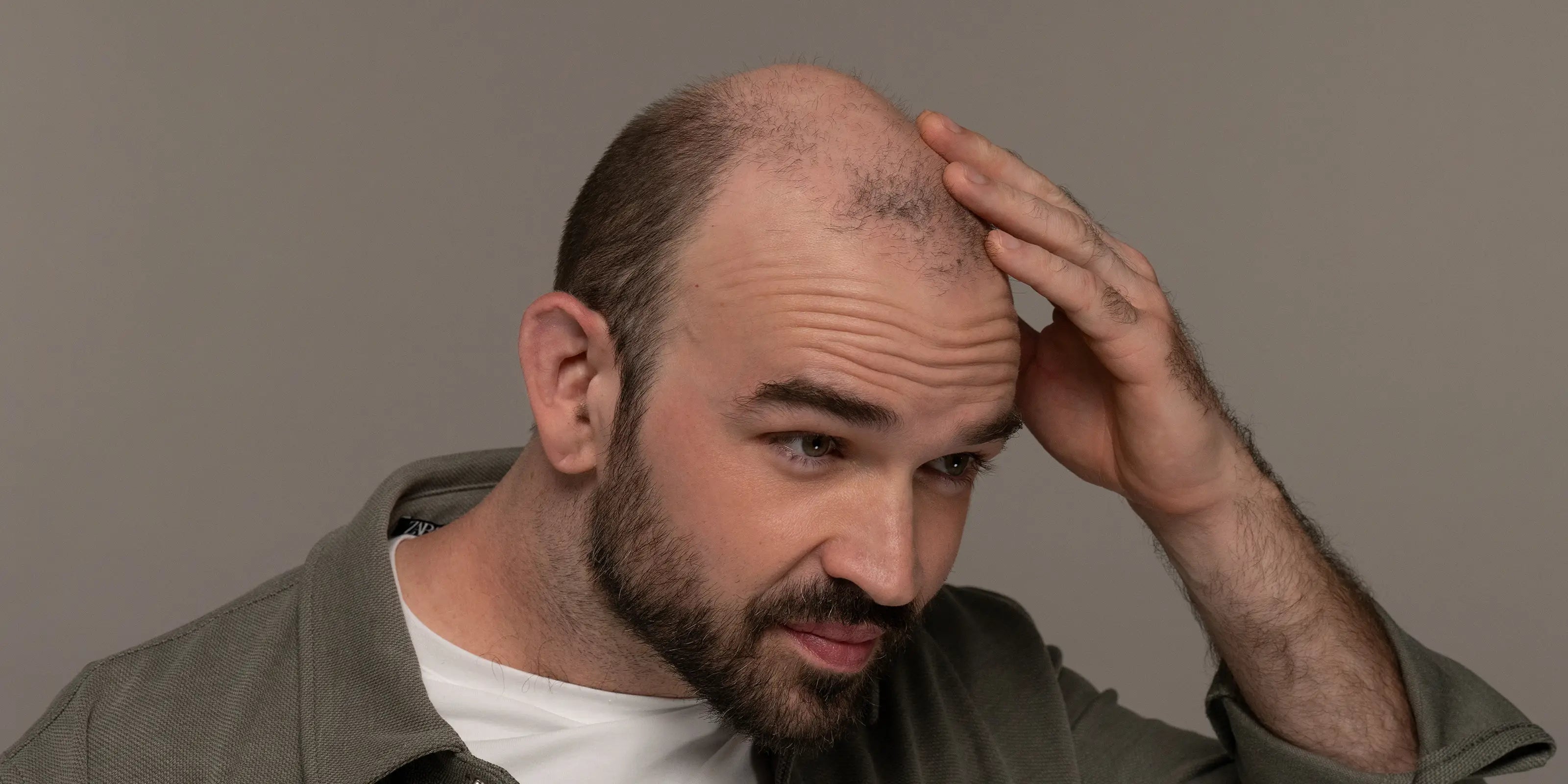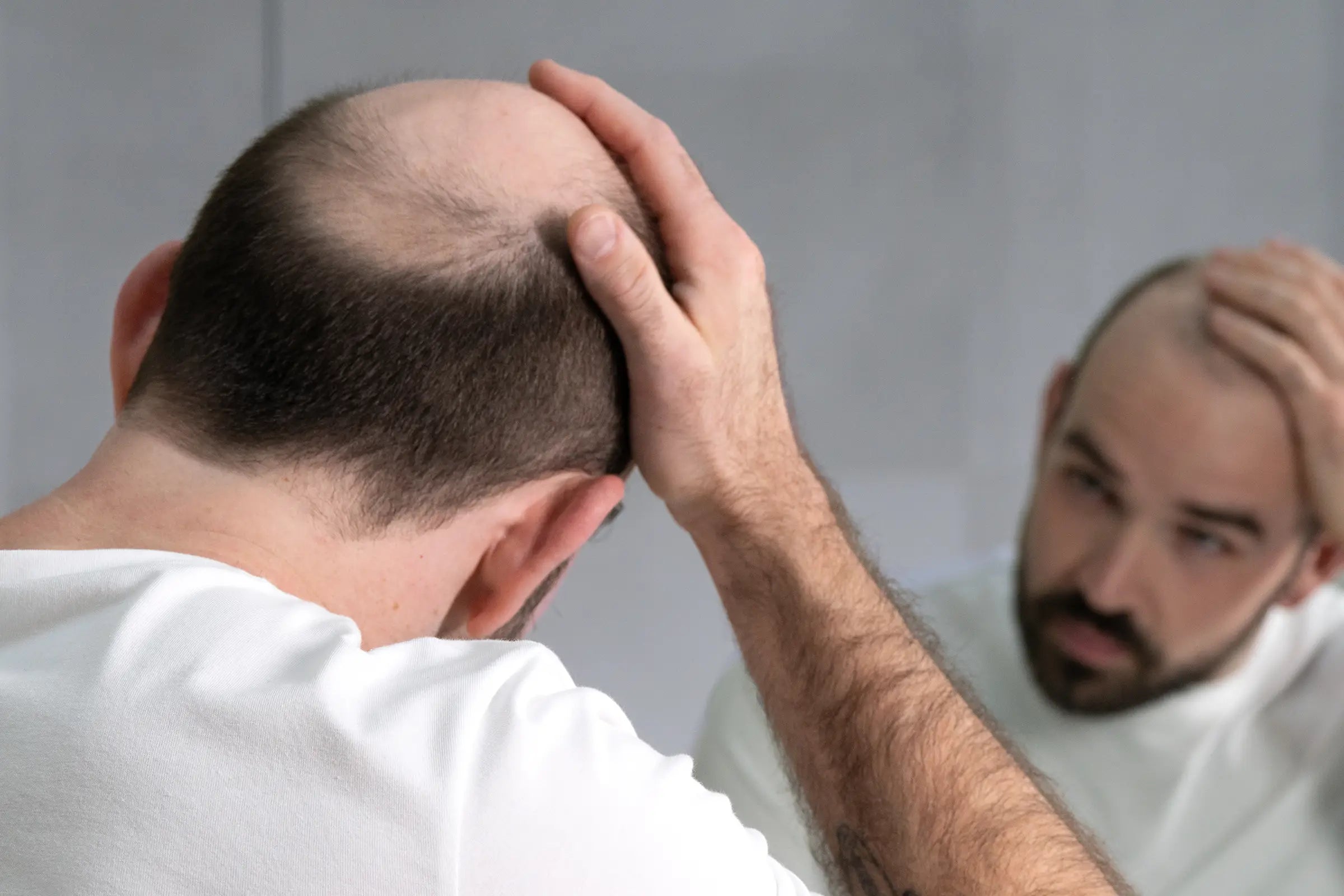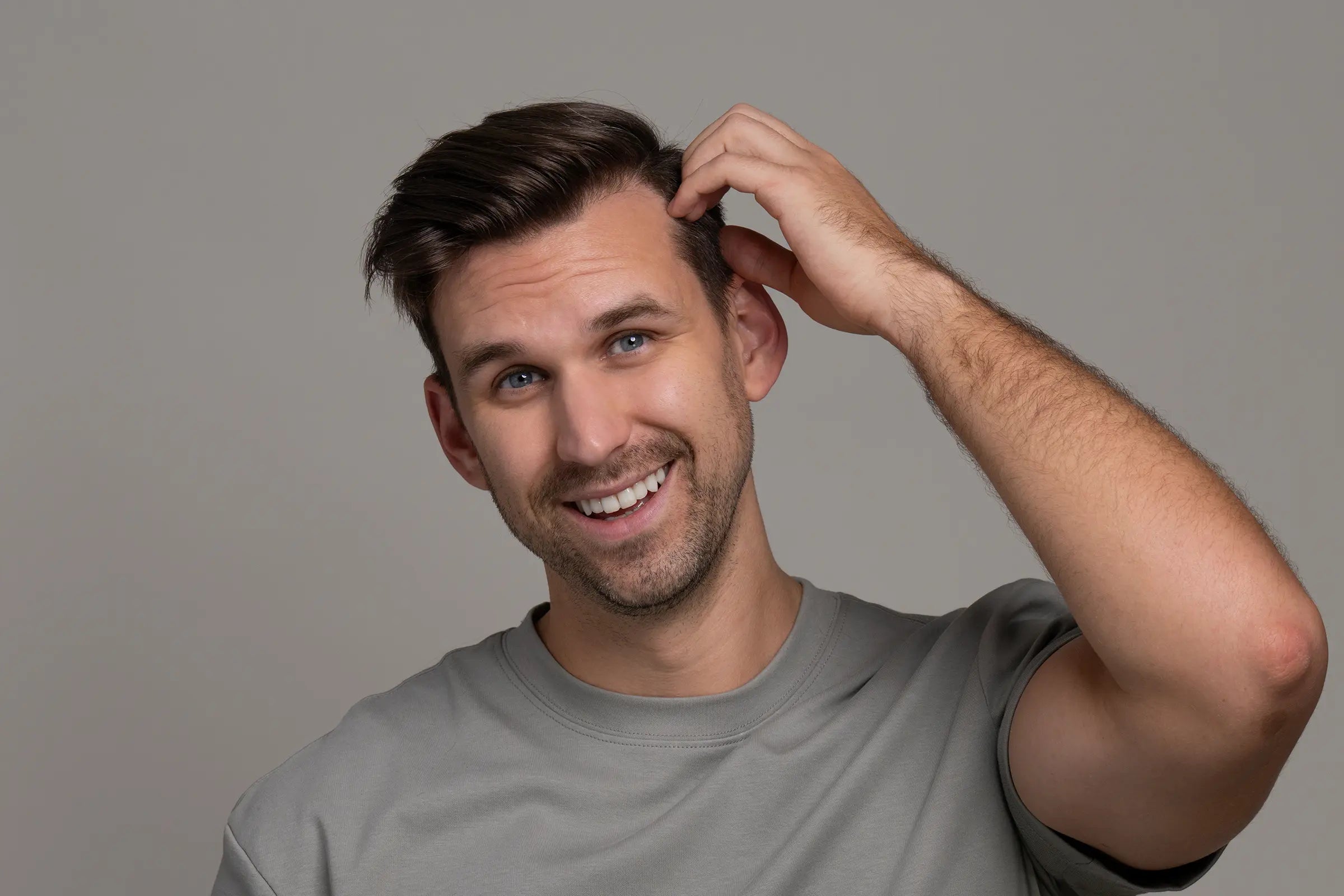What are the causes of male pattern baldness?

Male Sex Hormones
Your body makes DHT from testosterone. DHT is an essential male sex hormone (androgen), but in some men, high levels of DHT can trigger a process called follicular miniaturization. When this happens, the hair follicles (holes in your scalp that hair grows out of) start to shrink. This can cause hairs to become shorter and more prone to breaking. Eventually, hair follicles could stop producing hair altogether. But there’s hope. In many cases, it’s still possible to regrow hair. Treatments or products that help lower DHT levels can give hair follicles a chance to recover.

Genetics
Male pattern baldness is an inherited condition. It’s passed down to you through your genetics. Research has shown that men who have balding fathers may be at a 5-6x higher risk of losing their hair. Your genetics affect how your body responds to a male sex hormone called dihydrotestosterone (DHT), which is related to testosterone. Hair loss triggered by DHT usually involves a receding hair line, as well as balding at the crown or top of the head.
Hair regrowth treatments and products
Hair loss doesn’t have a one-size-fits-all solution. For example, your response to treatment may be impacted by how sensitive you are to changes in DHT hormone levels. Here are some options.
Get connected with a Doctor- The gold standard treatment for pattern hair loss
- Blocks the enzyme that makes DHT, lowering levels by 60-70%
- Available in pill or topical form from XYON
- Combines two different medications that target hair loss
- Finasteride addresses the root cause, DHT
- Minoxidil helps promote healthy hair growth
- A newer, more potent form of finasteride
- Blocks the enzyme that makes DHT, lowering levels by 90%
- Available in topical form at XYON
- Potent natural ingredients help target DHT
- Help with non-hormonal causes of hair loss
- Support scalp health for optimal hair growth

Can male pattern baldness be stopped?
Ultimately, your genes determine whether you’ll develop pattern hair loss. While you can’t stop hair loss from happening, there are ways to slow it down and grow your hair back. Controlling DHT levels is one way.
A licensed doctor or hair loss specialist can work with you to determine the best hair regrowth solution to meet your needs. Board-certified dermatologist Dr. Christina Han explains how men can get ahead of balding:
Why are there topical options and pill based options?
Both pill-based and topical solutions for pattern hair loss can be effective. But knowing which one is right for you can be overwhelming. That’s why we’ve made it easy for you to connect with a doctor through XYON to get expert guidance. Read on to learn more about your options for hair growth.
Learn More
Prescription Gels

Prescription Pills
- Lower risk of sexual side effects
- Timed-release technology
- Applied directly where you need it
- FDA approved concentrations and dosages
- Convenient to take
- Effective for many patients
- Finasteride
- Finasteride + Minoxidil
- Dutasteride
- Finasteride
- Minoxidil
- Minoxidil + Vitamin D
These do not cause hair loss
To treat male hair loss effectively, you have to get to the root of the problem. Here are some commonly cited causes for hair loss that don’t directly cause pattern balding.
Visit the blogShampoo
It’s a common misconception that hair products, or washing your hair in general, causes hair loss. In most cases, the hair that falls out when shampooing has been shed for a while. Shampoo and other hair products just help loosen them.
Sunshine
It’s always a good idea to protect your skin, including your scalp, from UV radiation, but exposure to sunlight itself doesn’t cause pattern balding. In fact, there are many benefits, including boosting vitamin D production.
In cases of excessive sun exposure (e.g. sun burns), damaged skin can trigger inflammation. Inflammation can negatively impact hair growth and contribute to premature hair loss.
Hats
Wearing hats doesn’t directly cause hair loss. They’re actually a great way to physically protect your scalp from the sun and other environmental factors. However, it’s important to keep your hats clean, to discourage harmful bacteria from growing on the scalp and potentially harming hair and scalp health.
Naturally High Testosterone
To clarify, it’s high DHT levels, not testosterone levels, that cause pattern hair loss. So even if you have naturally high testosterone, that doesn’t necessarily put you at higher risk of pattern baldness unless you also happen to be more sensitive to DHT. It’s important to understand that both hormones are essential to the maintenance of male health.
Your Mother's Genetic History
It’s a common misconception that your mom’s genes determine whether you’ll go bald. The reality is that male pattern hair loss is a polygenic trait, meaning that genetic contributions come from both parents.
The gene for something called an androgen receptor (basically, a contact point on cells that DHT can attach to) comes from your mother’s side. The characteristics of these contact points can have a big impact on your sensitivity to DHT. But there are many other genes that can influence androgen sensitivity, and some come from your father’s side.

